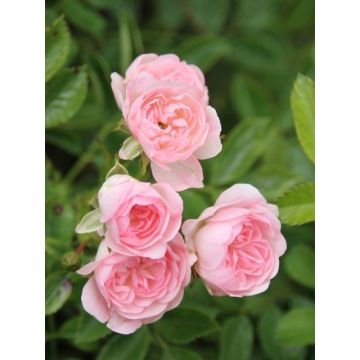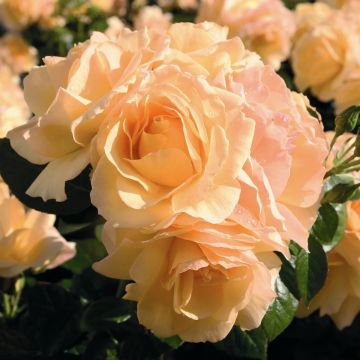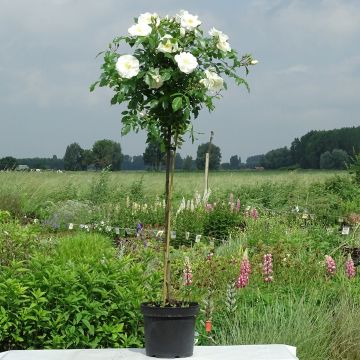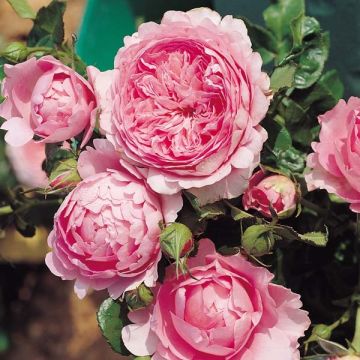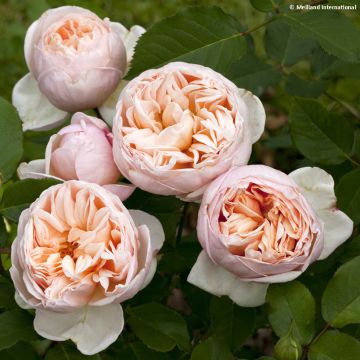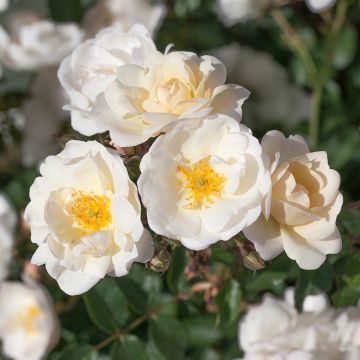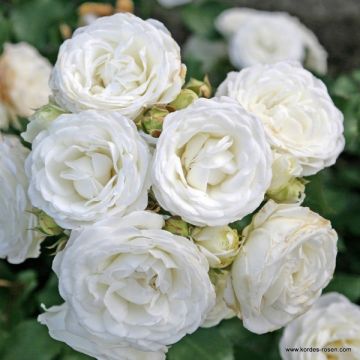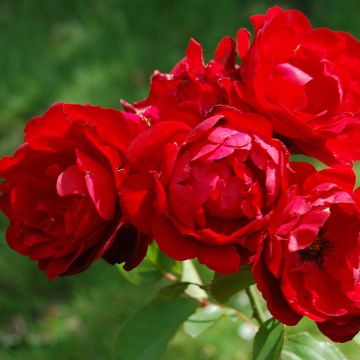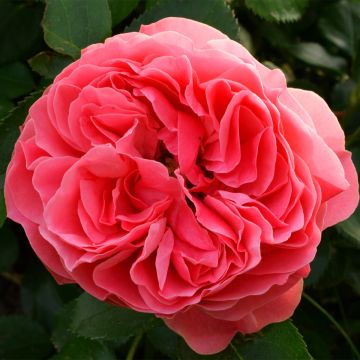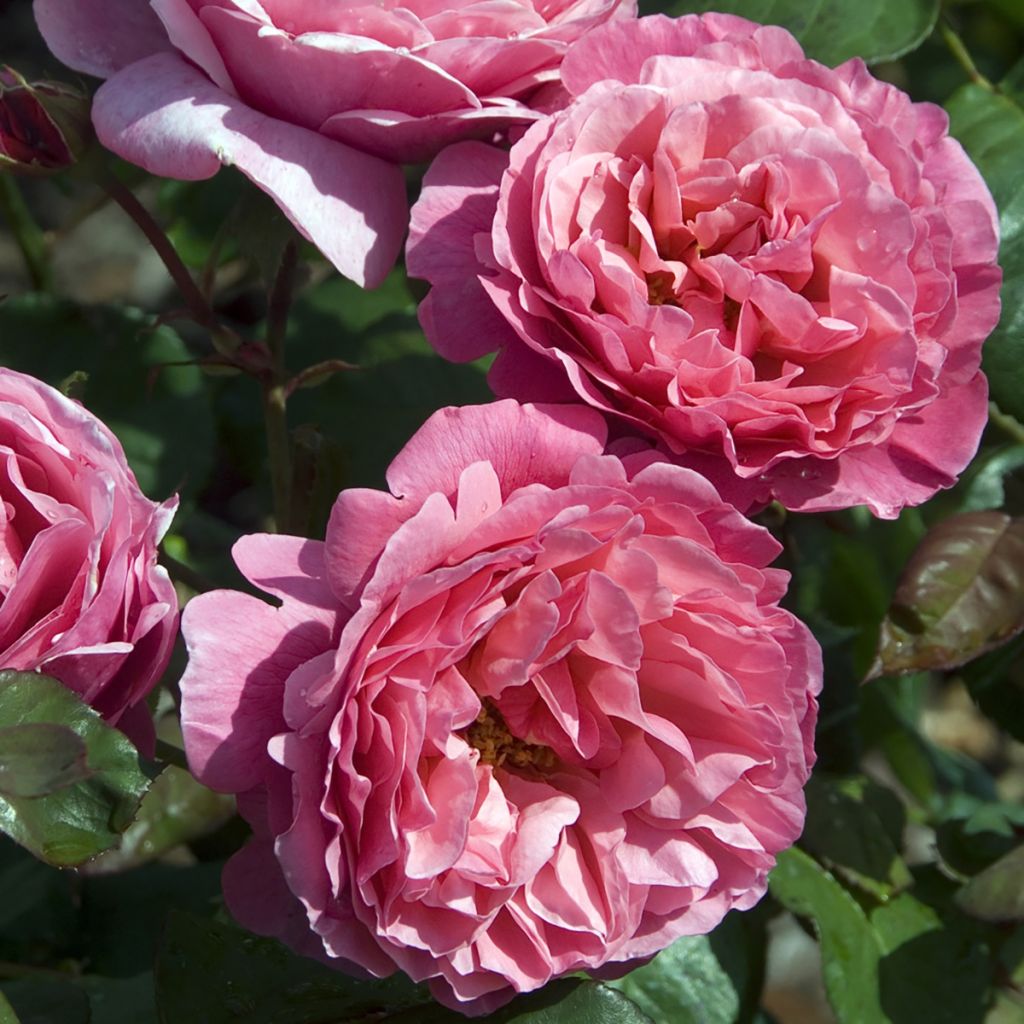

Rosa 'Line Renaud' - Standard Rose
Rosa 'Line Renaud' - Standard Rose
Rosa Line Renaud ® 'Meiclusif'
Meiclusif Standard Rose
This item cannot be shipped to the selected country
Oversize package delivery charge from €6.90
Oversize package delivery charge from €6.90
Delivery to Corse prohibited
More information
Schedule delivery date,
and select date in basket
This plant carries a 24 months recovery warranty
More information
We guarantee the quality of our plants for a full growing cycle, and will replace at our expense any plant that fails to recover under normal climatic and planting conditions.
Oversize package: home delivery by special carrier from €6.90 per order..
Express home delivery from €8.90.
Oversize package: home delivery by special carrier from €6.90 per order..
Express home delivery from €8.90.
Delivery to Corse prohibited: UE law prohibits the import of this plant from mainland France to Corse as part of the fight against Xylella fastidiosa. Please accept our sincere apologies.
More information

Does this plant fit my garden?
Set up your Plantfit profile →
Description
With its tree-like appearance, the 'Line Renaud' Standard Rose enhances this excellent creation by Meilland. Winner of numerous awards and holder of the prestigious German A.D.R label*, this modern rose produces large, romantic, double flowers in a delightful Indian pink, exuding a powerful fragrance with hints of fruity and resinous notes of orange and cypress. They bloom from June until the first frost on healthy foliage that is beautifully dark green and glossy, remarkably resistant to diseases. An exceptional rose within reach of all gardeners! It deserves a prominent place in the garden, and its roses are simply perfect in bouquets.
Standard roses are created by grafting a specific variety, such as the Line Renaud bush, onto a different rose's upright stem (either Rosa canina, R. laxa, or R. multiflora). This graft is performed at the top of the stem. In regions with very cold winters, it may be beneficial to protect the rootstock during this time.
'Line Renaud' or 'Meiclusif', created by rose breeder Meilland, belongs to the hybrid tea roses and remains to this day one of the best modern varieties with large, deep pink flowers, recognised, among others, with the Perfume Prize at Bagatelle and Orléans, the 1st Perfume Prize and the Gold Medal at Le Roeulx, and the Gold Medal at Buenos Aires. This rose has also been awarded the Grand Prix de La Rose SNHF (National Horticultural Society of France). Grafted on a standard stem, it has a characteristic habit and reaches a height of about 1.80 m (6ft) with a spread of 80-90 cm (32-35in) at the crown level. The plant develops sturdy and thorny stems. From May-June until late in the season, beautiful roses composed of 35 slightly serrated petals, arranged in quarters, bloom on long, sturdy stems. They are perfectly uniform in a warm pink colour. Their highly pronounced fragrance is described as floral and citrusy. It is also a very hardy variety. The deciduous foliage falls in autumn and reappears in spring.
This Line Renaud Standard Rose will find its place in the centre of a large rose bed, as a solitary specimen in a well-maintained garden, in a row along a pathway, or even in a container on the terrace. With its fragrance, the romantic appearance of its slightly blurred flowers, and its abundant flowering, it pairs perfectly with ground cover roses or pale pink bush roses ('Prince Jardinier'), white roses ('Jeanne Moreau', 'Jardins de Bagatelle'), and lovely plants like perennial geraniums 'Blue Cloud', 'Ann Folkard' or 'Orion', catmints, agastaches, or snapdragons ... Its flowers are ideal for creating very feminine bouquets that will delicately scent the house.
*The German Federation of Rose Breeders to Exceptional Roses awards the A.D.R label each year. The roses in competition are evaluated under real conditions, without any sanitary treatment, for three years and in eleven trial stations throughout Germany. It is reviewed annually.
Report an error about the product description
Rosa 'Line Renaud' - Standard Rose in pictures
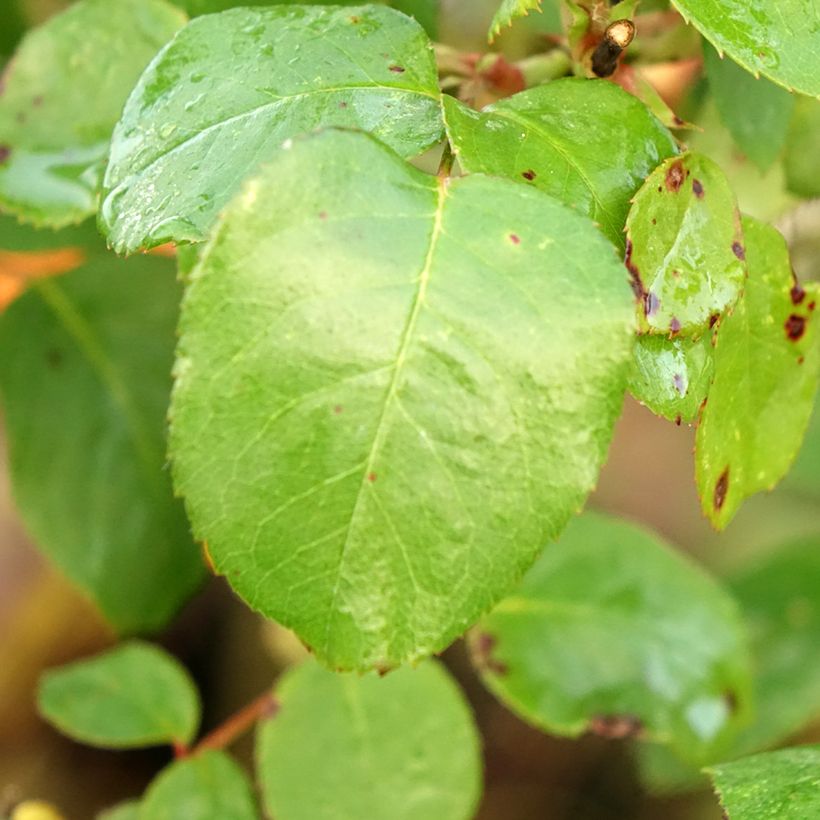

Plant habit
Flowering
Foliage
Botanical data
Rosa
Line Renaud ® 'Meiclusif'
Rosaceae
Meiclusif Standard Rose
Cultivar or hybrid
Other Tree Roses - Stem Roses
Planting and care
To plant your 'Line Renaud' standard rose, choose a sunny or lightly shaded spot with well-worked soil that is not too heavy and has enough nutrients. Avoid planting in poor and excessively dry soils. Prepare the soil by crumbling it and adding an amendment, such as blood, fish and bone, at the bottom of the planting hole. After planting, water abundantly to remove air pockets and continue to water regularly for a few weeks to help the roots establish.
If you live in an area with very cold winters, protect the graft of standard roses (the "trunk") by wrapping it with a thick winter cover.
Pruning modern repeat flowering roses is important for flowering and should be done in three stages:
1. Regular maintenance pruning: During the season, regularly shorten the flowering branches and remove faded flowers along with their stem, leaving 2 or 3 leaves to encourage repeat flowering.
2. Preparatory autumn pruning: Lightly prune in preparation for the 'main' spring pruning. Note: This is not recommended in regions with cold winters as this could weaken the bush.
3. Spring pruning: In February-March, when the buds have become shoots 2 to 3 cm (1in) long, prune the young, strong branches to one-quarter of their length.
When pruning, always aim to remove dead wood, diseased branches, and weak shoots while opening up the centre of the bush. Retain the most vigorous branches, generally 3 to 6 well-positioned, to maintain an attractive habit. Always prune at a slant ½ cm or 1 cm (0in) above an outward-facing bud.
Roses may develop unsightly spots at the end of summer, but this is a natural occurrence and doesn't harm the rose's growth.
Planting period
Intended location
Care
-
, onOrder confirmed
Reply from on Promesse de fleurs
Roses by producer
Haven't found what you were looking for?
Hardiness is the lowest winter temperature a plant can endure without suffering serious damage or even dying. However, hardiness is affected by location (a sheltered area, such as a patio), protection (winter cover) and soil type (hardiness is improved by well-drained soil).

Photo Sharing Terms & Conditions
In order to encourage gardeners to interact and share their experiences, Promesse de fleurs offers various media enabling content to be uploaded onto its Site - in particular via the ‘Photo sharing’ module.
The User agrees to refrain from:
- Posting any content that is illegal, prejudicial, insulting, racist, inciteful to hatred, revisionist, contrary to public decency, that infringes on privacy or on the privacy rights of third parties, in particular the publicity rights of persons and goods, intellectual property rights, or the right to privacy.
- Submitting content on behalf of a third party;
- Impersonate the identity of a third party and/or publish any personal information about a third party;
In general, the User undertakes to refrain from any unethical behaviour.
All Content (in particular text, comments, files, images, photos, videos, creative works, etc.), which may be subject to property or intellectual property rights, image or other private rights, shall remain the property of the User, subject to the limited rights granted by the terms of the licence granted by Promesse de fleurs as stated below. Users are at liberty to publish or not to publish such Content on the Site, notably via the ‘Photo Sharing’ facility, and accept that this Content shall be made public and freely accessible, notably on the Internet.
Users further acknowledge, undertake to have ,and guarantee that they hold all necessary rights and permissions to publish such material on the Site, in particular with regard to the legislation in force pertaining to any privacy, property, intellectual property, image, or contractual rights, or rights of any other nature. By publishing such Content on the Site, Users acknowledge accepting full liability as publishers of the Content within the meaning of the law, and grant Promesse de fleurs, free of charge, an inclusive, worldwide licence for the said Content for the entire duration of its publication, including all reproduction, representation, up/downloading, displaying, performing, transmission, and storage rights.
Users also grant permission for their name to be linked to the Content and accept that this link may not always be made available.
By engaging in posting material, Users consent to their Content becoming automatically accessible on the Internet, in particular on other sites and/or blogs and/or web pages of the Promesse de fleurs site, including in particular social pages and the Promesse de fleurs catalogue.
Users may secure the removal of entrusted content free of charge by issuing a simple request via our contact form.
The flowering period indicated on our website applies to countries and regions located in USDA zone 8 (France, the United Kingdom, Ireland, the Netherlands, etc.)
It will vary according to where you live:
- In zones 9 to 10 (Italy, Spain, Greece, etc.), flowering will occur about 2 to 4 weeks earlier.
- In zones 6 to 7 (Germany, Poland, Slovenia, and lower mountainous regions), flowering will be delayed by 2 to 3 weeks.
- In zone 5 (Central Europe, Scandinavia), blooming will be delayed by 3 to 5 weeks.
In temperate climates, pruning of spring-flowering shrubs (forsythia, spireas, etc.) should be done just after flowering.
Pruning of summer-flowering shrubs (Indian Lilac, Perovskia, etc.) can be done in winter or spring.
In cold regions as well as with frost-sensitive plants, avoid pruning too early when severe frosts may still occur.
The planting period indicated on our website applies to countries and regions located in USDA zone 8 (France, United Kingdom, Ireland, Netherlands).
It will vary according to where you live:
- In Mediterranean zones (Marseille, Madrid, Milan, etc.), autumn and winter are the best planting periods.
- In continental zones (Strasbourg, Munich, Vienna, etc.), delay planting by 2 to 3 weeks in spring and bring it forward by 2 to 4 weeks in autumn.
- In mountainous regions (the Alps, Pyrenees, Carpathians, etc.), it is best to plant in late spring (May-June) or late summer (August-September).
The harvesting period indicated on our website applies to countries and regions in USDA zone 8 (France, England, Ireland, the Netherlands).
In colder areas (Scandinavia, Poland, Austria...) fruit and vegetable harvests are likely to be delayed by 3-4 weeks.
In warmer areas (Italy, Spain, Greece, etc.), harvesting will probably take place earlier, depending on weather conditions.
The sowing periods indicated on our website apply to countries and regions within USDA Zone 8 (France, UK, Ireland, Netherlands).
In colder areas (Scandinavia, Poland, Austria...), delay any outdoor sowing by 3-4 weeks, or sow under glass.
In warmer climes (Italy, Spain, Greece, etc.), bring outdoor sowing forward by a few weeks.








































